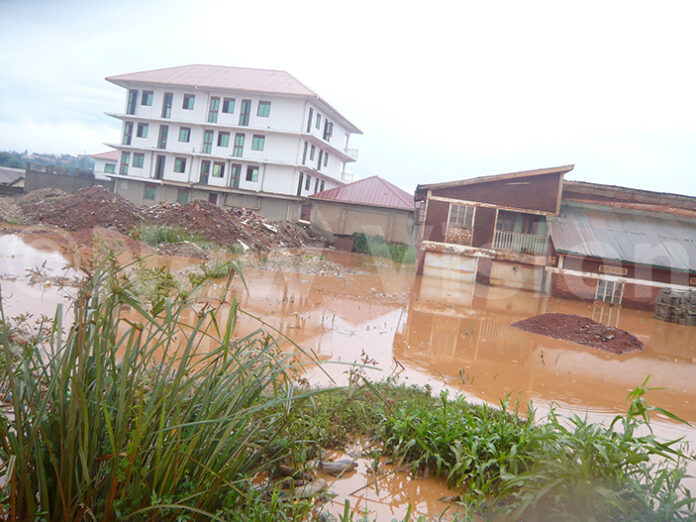
The description of the wetlands in Kampala paints a vivid picture of their natural beauty and ecological significance.
It’s on record that the wetlands around the Golf course and Garden City, stretching to Wampewo Avenue and extending to the industrial area, have been largely degraded.
Recently, residents have been experiencing terrible floods whenever it rains due to the encroachment. The Bugolobi and Luzira wetlands adjacent to Lake Victoria have not only been replaced by posh residential houses but also factories and industries.
The Namanve industrial park is established in a wetland, and every day that goes by, industries keep emerging in the once-treasured eco-friendly wetland.
Recently, the Buziga, Munyonyo, and Kigo areas, which were once considered wetland reserves, have turned into resorts and big hotels to host the biggest summits in the country.
A few months ago, the river Katonga burst its banks, and floods cut off the Kampala-Masaka road due to encroachment along the same stretch on the Masaka road.
According to Lukanga Sarah, an environmental activist, “Wetlands are nature’s sponges, providing invaluable services like water purification, flood control, and climate regulation.”
The efforts of young activists like Sarah, who have grown up experiencing the wetlands’ importance firsthand, are instrumental in raising awareness and demanding action.
“It is essential for governments and policymakers to recognize the significance of wetlands and take decisive steps to protect them from further degradation.” Sarah added
In conclusion, preserving the wetlands of Kampala is crucial for the overall well-being of the region and its inhabitants.














